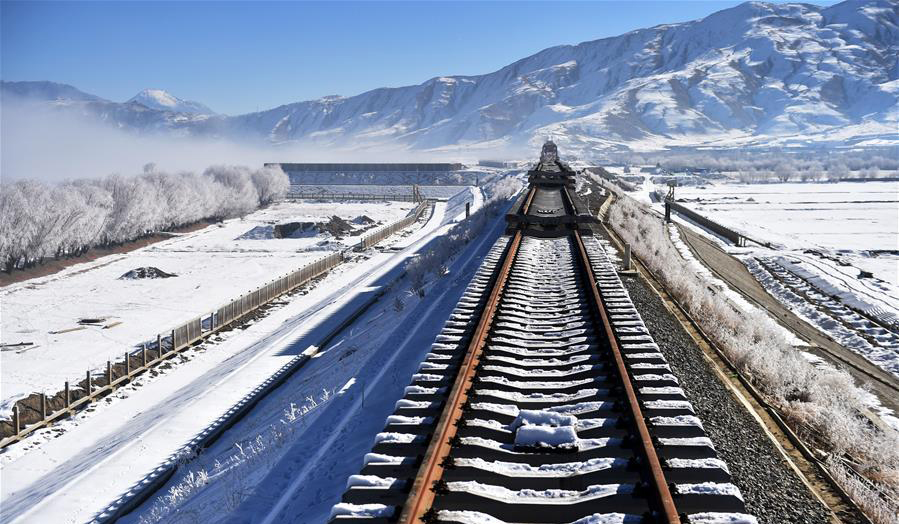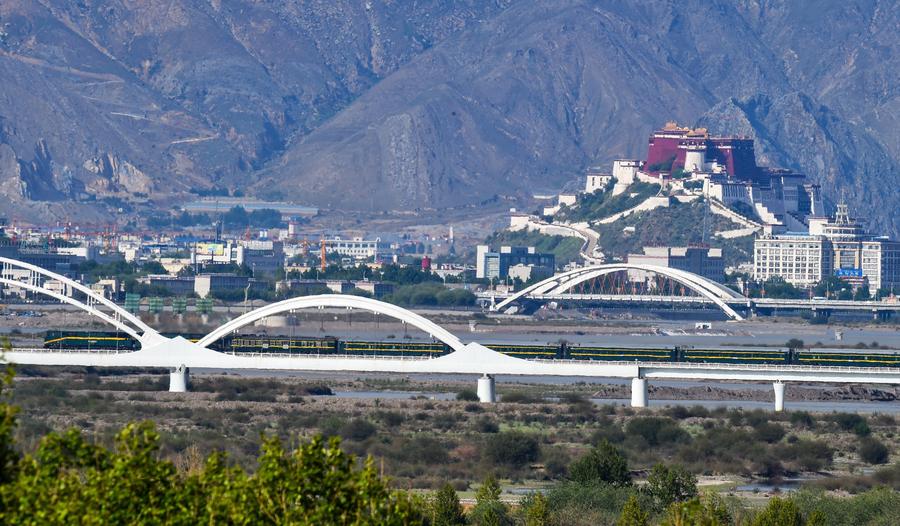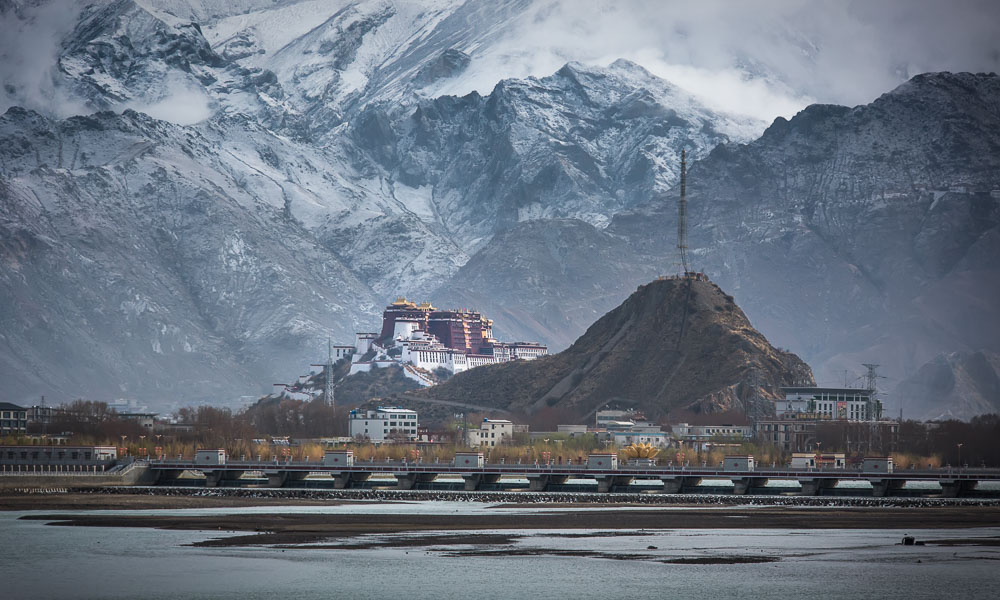Railway brings Tibet village out of poverty
The Qinghai-Tibet Railway has made Sama village in the Tibet autonomous region a model for rural prosperity.
Sama, which sits right next to the Lhasa West Railway Station in Tibet's capital, was once an impoverished village with shabby houses, muddy roads and poor infrastructure.
Villagers used to rely on farming and grazing, and obtaining adequate food could be a challenge for over 800 families, let alone taking good care of seniors and providing good education to the children.
"There were a large number of young people in the village without jobs and living on government assistance," said Nyima, Party secretary of the village.
Lack of access to transportation also caused difficulties to villagers and hindered poverty alleviation efforts. Life before the railway was extremely hard, he added.
However, with the opening of the 1,956-kilometer Qinghai-Tibet Railway on July 1, 2006, the inflow of supplies was made possible.
Villagers saw great opportunities in freight services with their favorable location near Lhasa West Railway Station. Under a call from Nyima, every household in the village gave a share of money to co-found Zhentong Logistic Company.
Zhang Weidong, Party secretary of Lhasa West Railway Station of the Qinghai-Tibet Railway Company, said that as the largest freight station in Tibet, it's responsible for the transportation of daily necessities and construction materials across the region.
With little money at the time, villagers only bought 30 small vans. In order to get everything right as soon as possible, they paid a large sum of money hiring an experienced manager who had worked for a logistics company in Beijing to teach them how to run the business.
"The logistics industry should be given priority in order to revitalize the countryside. Many villagers worked as drivers, loaders or cleaners in our company and at the station. It became rare to see young people wandering around," said Nyima, who is also the legal representative of the company.
Thanks to the villagers' endeavors and the geographic advantages, the company now has over 130 vehicles in operation, and its annual revenue grew to more than four million yuan ($579,000) last year. Every villager received at least 2,000 yuan for a year-end bonus from the company in February.
The area also saw more businesses spring up, such as hotels, restaurants and convenience stores. Villagers no longer need to travel more than 1,000 kilometers away to earn a living, he added.
"The whole village was lifted out of poverty in 2015. The annual per capita income of our village is more than 10,000 yuan, five times that of 2006. Some of the villagers even bought apartments in downtown Lhasa," Nyima said, adding that even a tractor was a rare sight in the village, but now almost every family has their own private car.
Cargo throughput of Lhasa West Railway Station reached 5.75 million metric tons in 2018, more than 17 times than that of 2006.
"The station has been expanding, and when it's done it will be able to handle over 8 million tons of goods every year," Zhang said. "It will then help more villages like Sama."
Tibet Stories

"Democratic reform gave me my first full meal"
After taking a sip of the butter tea, Lhakyi started to tell her story. “Before I was born,...
Editor’s Choice
- China hopes U.S. ambassador will better understand Tibet through visit
- Tibet shows it cares for a cleaner Mt Qomolangma
- The United States' new tactics of interfering in the internal affairs of China
- Prominent Belgian sinologist says nobody can deny rapid economic development of Tibet
- Tibet's cultural industry sees sound development







